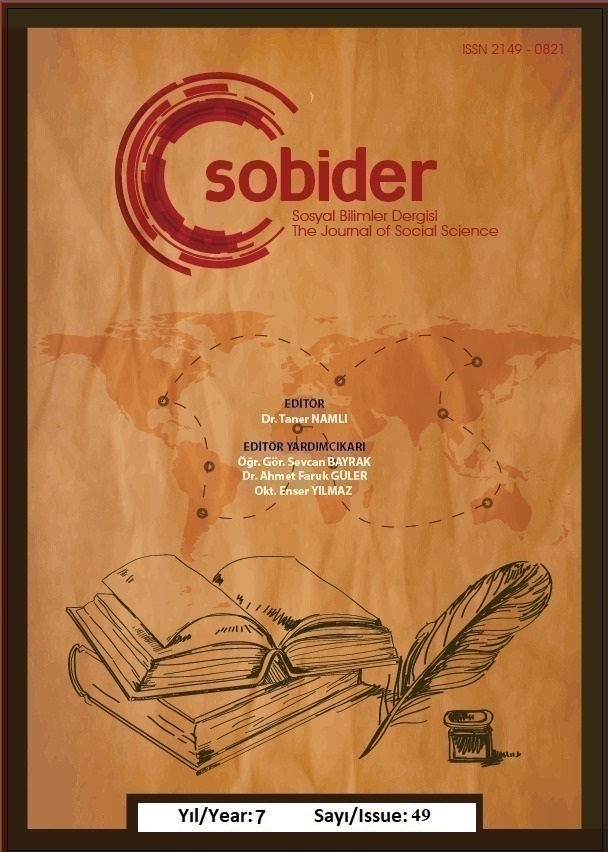Author :
Abstract
Lozan Barış Antlaşması, yeni Türk devletinin Misakı-ı Milli kapsamında uzun süreli bir mücadeleden sonra elde ettiği bağımsızlık beratıdır. Bu bağlamda Türk Milletinin iktisadi, siyasi, hukuki, adli ve kültürel bağımsızlığının bir ifadesi olan Lozan Barış Antlaşması, TBMM’de 6 Ağustos 1923’te onaylanarak iç hukukta işlerlik kazanmıştı. Lozan’ın uluslararası hukukta tanınması ise taraf ülkelerin parlamentolarında onaylanmasından sonra söz konusu olmuştu. Lozan’da elde edilen başarı, 24 Temmuz 1923’ten itibaren bütün yurtta coşku dolu kutlamalara sahne olmuş; İsmet Paşa ve arkadaşları için karşılama törenleri düzenlenmişti. Atatürk de bizzat Eskişehir’e gelerek İsmet Paşa ve Lozan heyetini karşılamıştı. 23 Nisan Millî Hâkimiyet Bayramı, 19 Mayıs Gençlik Bayramı, 30 Ağustos Zafer Bayramı ve 29 Ekim Cumhuriyet Bayramı gibi milli bir bayram olarak kabul edilmese de sonraki yıllarda İstanbul Üniversitesi başta olmak üzere İstanbul, Ankara ve diğer kentlerde düzenlenen çeşitli toplantı ve etkinliklerle idrak edilmişti. Lozan günü etkinlikleri özellikle Atatürk’ün, teşviki ile 1927 yılından itibaren yurdun dört bir yanında “Lozan Günü” olarak kutlanmaya başlamıştır. Lozan Günü kutlamaları, 1939 yılında geçmiş yıllara nazaran daha kapsamlı bir şekilde kutlanmıştı. Zirâ Atatürk’ün ölümüyle birlikte 11 Kasım 1938’de Cumhurbaşkanı olan İsmet İnönü döneminde kutlanan ilk Lozan günü idi. CHP Genel Sekreterliğince yayımlanan tamimler doğrultusunda yurt genelindeki Halkevleri marifetiyle gerçekleştirilen Lozan Günü kutlamaları Malatya’da da coşku ile kutlanmıştı. Bu çalışma ile Türk milli kimliğinin şekillenmesinde diğer millî bayramlarda olduğu gibi Lozan Günü etkinliklerinin yeri ve önemi vurgulanmaya çalışılmıştır. Çalışma, T.C. Devlet Arşivlerindeki CHP evrakı ile dönemin ulusal ve yerel basınında yer alan haberler taranarak Ankara, İstanbul, İzmir ve Malatya özelinde hazırlanmıştır.
Keywords
Abstract
The Lausanne Peace Treaty is a certificate of independence obtained by the new Turkish state after a long period of struggle within the scope of the National Pact. In this context, the Lausanne Peace Treaty, an expression of the economic, political, legal, judicial, and cultural independence of the Turkish Nation, was approved in the Turkish Grand National Assembly on 6 August 1923 and became operational in domestic law. The recognition of Lausanne in international law came after the approval of the parliaments of the parties. The success achieved in Lausanne has been the scene of enthusiastic celebrations throughout the country since July 24, 1923; Welcome ceremonies were organized for İsmet Pasha and his friends. Atatürk himself came to Eskişehir and met İsmet Pasha and the Lausanne delegation. Although it was not accepted as a national holiday such as 23 April National Sovereignty Day, 19 May Youth Day, 30 August Victory Day, and 29 October Republic Day, it was realized with various meetings and events held in Istanbul, Ankara, and other cities in the following years. Since 1927, with the orders of Atatürk, it has been celebrated as Lausanne Day all over the country. The Lausanne Day celebrations were more extensive in 1939 than in the past. It was the first day of Lausanne celebrated during the period of İsmet İnönü, the President of Turkey, on 11 November 1938 with the death of Atatürk. In line with the statements issued by the CHP General Secretariat, the celebrations of Lausanne Day / Feast celebrated with the help of the People's Houses throughout the country were celebrated with enthusiasm in Malatya. The aim of this study is to emphasize the importance and place of Lausanne Festival activities in shaping the Turkish national identity. The study period with the Republic of Turkey's CHP Archive papers in the national and local press in the news are scanned in Ankara, Istanbul, Izmir, and has been prepared in Malatya special.
Keywords
- Algan, Hamidiye (2011), Halkevlerinde İnkılap Temsilleri(1932-1951), Ankara Üniversitesi Türk İnkılabı Tarihi Enstitüsü, Basılmamış Yüksek Lisans Tezi, Ankara.
- Karacan, Ali Naci (1989), Lozan, Milliyet Yayınları, (2. Baskı), İstanbul.Atatürk Kültür, Dil veTarih Yüksek Kurumu Atatürk Araştırma Merkezi, Atatürk’ün Söylev ve Demeçleri I- III (Atatürk’ün Söylev ve Demeçleri II:1906-1938), Ankara 1989
- Atatürk, Mustafa Kemal (2005), Nutuk (1919-1927), (Bugünkü Dille Yayına Hazırlayan: Zeynep Korkmaz), Atatürk Araştırma Merkezi Yayınları, Ankara.
- Bilsel, M. Cemil (1998), Lozan II, İstanbul.
- Gökgöz, Gurbet (2011), “Belleklerden Silinmeye Yüz Tutan Bir Gün: Lozan Sulh Bayramı”, Çağdaş Türkiye Tarihi Araştırmaları Dergisi. Cilt: X, Sayı: 22, (95-114).
- Gönlübol, Mehmet-Sar (1997), Cem, Atatürk ve Türkiye’nin Dış Politikası (1919-1938), Atatürk Araştırma Merkezi Yayınları, Ankara.
- İnönü, İsmet (1987), İsmet İnönü Hatıralar, Cilt: 2, Bilgi Yayınevi, Ankara.
- Lewis, Bernard (2007), Modern Türkiye’nin Doğuşu.(10. Baskı). Türk Tarih Kurumu Yayını,Ankara.Lozan Barış Konferansı, Tutanaklar-Belgeler, Takım: I, Cilt: I, Kitap: 1 (1973), (Çev. Seha L. Meray), Siyasal Bilgiler Fakültesi Yayını, Ankara.
- Lozan Barış Konferansı, Tutanaklar-Belgeler, Takım: II. Cilt: 2 (1973) (Çev. Seha L. Meray), Siyasal Bilgiler Fakültesi Yayını, Ankara.
- Lozan Barış Konferansı, Tutanaklar-Belgeler, Takım: II. Cilt: 2 (1973), (Çev. Seha L. Meray), Siyasal Bilgiler Fakültesi Yayınları, Ankara.
- Lozan Barış Konferansı-Tutanaklar, Belgeler, Takım II. Cilt: II, (1973), (Çev. Seha L. Meray),Lozan Barış Konferansı-Tutanaklar, Belgeler, Takım: I. Cilt: I. Kitap: 2 (1970), (Çev. Seha L.Lozan Barış Konferansı-Tutanaklar, Belgeler, Takım: I. Cilt: III. (1972), (Çev. Seha L. Meray), Siyasal Bilgiler Fakültesi Yayını Ankara.
- Sevig, Vasfi Raşit (1979), “Lozan Zaferinin Yıldönümünde”, Ulus, 24 Temmuz, 2.
- Şimşir, Bilâl N. (1994), Lozan Telgrafları II (Şubat-Ağustos 1923), Türk Tarih Kurumu Yayınları, Ankara.
- TBMM Gizli Celse Zabıtları (1985), Cilt: III, İş Bankası Yayınları, Ankara.
- TBMM Vakfı, Türk Parlamento Tarihi I(TBMM.-II. Dönem: 1923-1927) (1994), TBMM Basımevi, Ankara.
- TC. Kültür Bakanlığı, Atatürk’ün Millî Dış Politikası I (Millî Mücadele Dönemine ait 100 Belge) 1919-1923 (1981), Kültür Bakanlığı Yayınları, Ankara.





